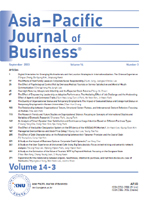통근 시간이 일-가정 갈등에 미치는 영향: 통근 스트레스의 매개 및 통근 활동의 조절된 매개효과
The Effect of Commuting Time on Work-Family Conflicts among Chinese Workers: Mediation of Commuting Stress
- 강원대학교 경영경제연구소
- 아태비즈니스연구
- 제16권 제1호
-
2025.03225 - 243 (19 pages)
-
DOI : 10.32599/apjb.16.1.202503.225
- 11

Purpose - Commuting time is a rigid and unavoidable demand that puts pressure on individuals' private lives and leisure time. However, there are conflicting views regarding the effect of longer commutes, either as demands or gifts. This research aims to determine the effect of commuting time on work-family conflict through commuting stress, using the case of China. Furthermore, we investigate whether commuting mode and commuting activities play a moderating role in the mediating effect of commuting stress. Design/methodology/approach - Survey data from 343 Chinese workers were analyzed. Using Hayes’ (2022) PROCESS models, we examined the mediation of commuting stress between commuting time and work-family conflict and the moderated mediation effects of commuting mode and commuting activities on the path between commuting time and commuting stress. Findings - This study demonstrates that longer commutes can increase work-family conflict as long as they are stressful for the commuter. In addition, commuting activities moderated the relationship between commuting time and commuting stress: the adverse effect of longer commuting time on commuting stress was alleviated when people engaged in activities that were not related to work or family during the commute. Research implications/originality - This result supports the view of commuting time as a demand rather than a resource or gift, emphasizing the adverse effect of longer commutes. This study helps us understand the conditions such as specific commuting activities under which the adverse effect of longer commutes can be alleviated. Our result seems to resonate with the idea of psychological detachment or segmentation in border theory, emphasizing that the separation of work and family may be beneficial for workers
Ⅰ. 서론
Ⅱ. 이론적 배경 및 가설 설정
Ⅲ. 연구 설계 및 방법
Ⅳ. 결과
Ⅴ. 결론 및 논의
References
(0)
(0)